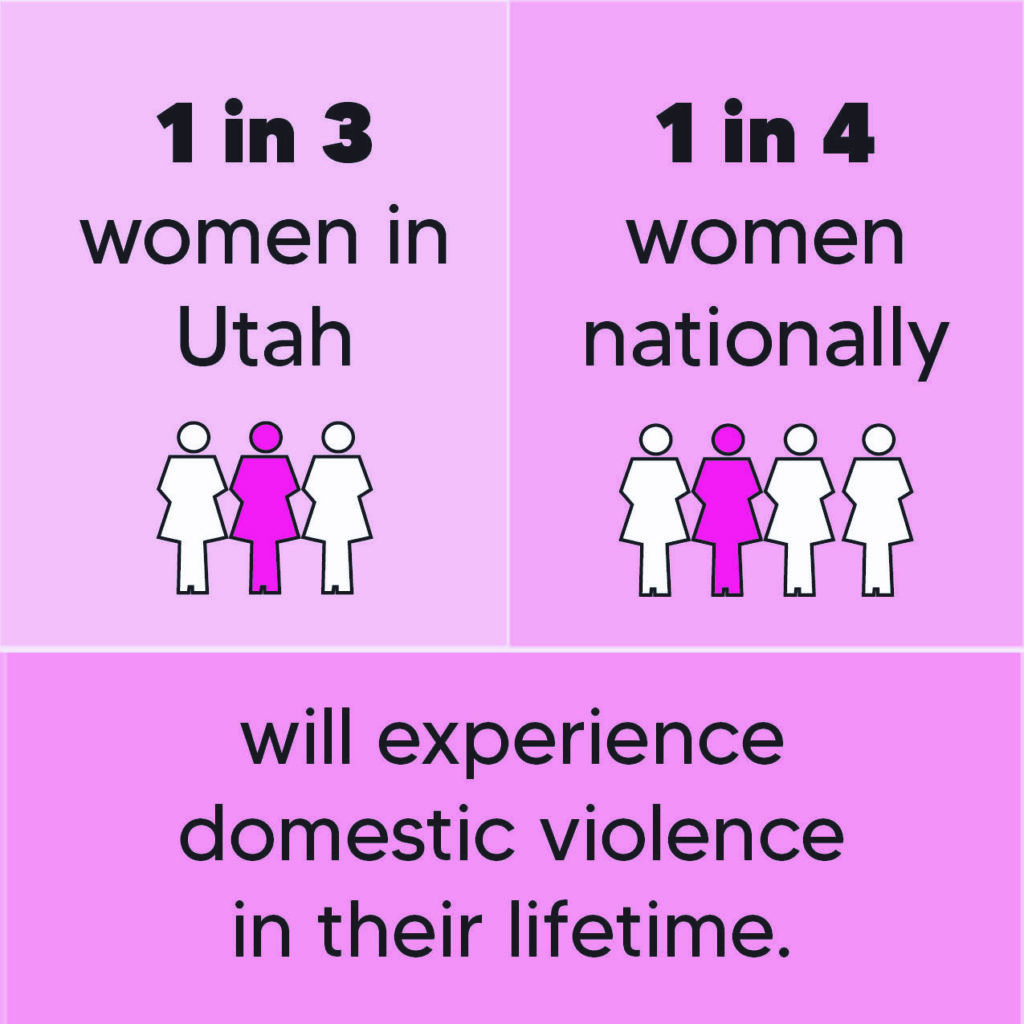
Domestic violence hotlines and shelters across Utah have seen an increase in use since the start of the COVID-19 pandemic.
Utah Domestic Violence Coalition media consultant Liz Sollis said domestic violence hotlines across the state have reported a 25 to 50 percent increase in crisis calls since the start of COVID-19 in the U.S.
Sollis said domestic violence perpetrators often use isolation as a tactic, so people staying at home because of social distancing or stay-at-home orders could put victims at a greater risk. She said victims are now spending more time with their perpetrators and have fewer opportunities to report the abuse to other people.
Sollis said if victims are isolated and aren’t seeing examples of other relationships, the abuse can become normalized within the relationship. And even if the victim has a trusted friend or neighbor they could reach out to, she said, if their perpetrator is working from home, they have limited alone time where they can reach out safely without the perpetrator knowing.
Shelter manager Laurie Loader at Refuge Utah in Orem, formerly known as the Center for Women and Children in Crisis, said whenever she is working on a safety plan with someone, she always tells them never to tell their abuser that they’re planning on leaving.
“The most dangerous time for the victim is when they are leaving. If the abuser finds out that they’re leaving or planning on leaving, they will usually ramp up the power and control,” Loader said. “The abuser does not want to be exposed so they don’t want to let that person go.”
Utah Domestic Violence Coalition prevention coordinator Claire Mosby said that research around intimate partner violence has found that job instability is also a risk factor for increased violence.
“And we’re seeing a lot of that (job instability) during COVID-19. A lot of people have lost their jobs or have become underemployed,” Mosby said.
Mosby also said people might be using more drugs or alcohol now to cope with the stresses of the pandemic or economic insecurity, and that increased substance use is another risk factor for increased violence in an abusive relationship.
“But again, that’s for people who are already abusive,” she said. “It’s not like you lose your job and you become an abusive partner. Or you get drunk and you become an abusive partner. Those things can make it worse, but don’t cause it.”
Sollis said in addition to increased hotline calls, emergency shelters are also getting more requests and people are staying longer. She said before the pandemic, a lot of victims wouldn’t actually go to a shelter but would stay with family, friends, or they would stay at their home and the perpetrator would leave. But those options aren’t as available right now, she said, with people concerned about contracting COVID-19 or because their income is strained.
Mosby said the COVID-19 pandemic has shined a light on the limited housing and financial resources for victims and emergency shelters. Shelters have a lower capacity right now to maintain social distancing, only allowing one family or one individual, and so she said it has been a struggle to find housing for people at times. She said a lot of domestic violence programs have received support and grants during the pandemic, and she hopes that continues after the pandemic subsides.
Sollis said people can better help victims in their community by becoming familiar with local resources and educating themselves about domestic violence so they can spot it. She said people often don’t view emotional, psychological, financial, or verbal abuse as abuse, but that abuse can take many different forms.
“What we’ve found and what studies have shown is that if that other abuse is taking place, it’s often just a matter of time before physical or sexual violence is a component as well,” Sollis said.
Free and confidential help and support for victims and survivors of domestic or intimate partner violence is available 24/7: 1-800-897-LINK (5465) or udvc.org. If you or someone else is in immediate danger, or in an emergency, please call 9-1-1 immediately.




